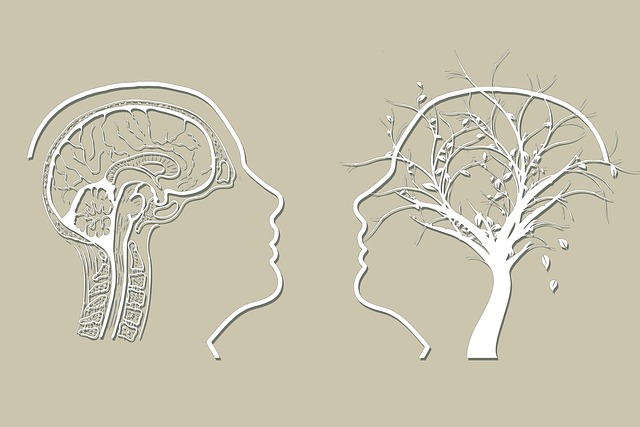Depression in Arvada, Colorado, requires a comprehensive approach due to its complex nature, genetic influences, and environmental triggers like stress and isolation. Key prevention strategies include couples therapy focusing on communication issues, which strengthens relationships and boosts emotional well-being. Promoting healthy lifestyle changes through exercise, nutrition, and sleep is vital, along with public awareness campaigns on mental health literacy. Professional support, such as cognitive behavioral therapy (CBT) and medication management, is offered, with a focus on burnout prevention for healthcare providers and trauma support services. Building resilience through various therapeutic programs equips individuals with coping mechanisms to prevent depression and enhance overall well-being, emphasizing the importance of Arvada Couples Communication Issues Therapy in mental health initiatives.
Depression is a prevalent and serious mental health challenge, but prevention is key. This article explores comprehensive strategies to combat this condition, from understanding its roots—including the impact of communication issues as highlighted by Arvada Couples Therapy—to practical lifestyle adjustments. We delve into professional support, treatment options, and building resilience. By combining these approaches, individuals can enhance their mental well-being and develop effective coping mechanisms.
- Understanding Depression and Its Causes
- The Role of Communication in Preventing Depression (with a focus on Arvada Couples Therapy)
- Lifestyle Changes for Enhanced Mental Well-being
- Professional Support and Treatment Options
- Building Resilience and Coping Strategies
Understanding Depression and Its Causes

Depression is a complex mental health condition that significantly impacts an individual’s daily life and well-being. It goes beyond mere sadness or temporary feelings of blue; depression involves persistent low mood, loss of interest in activities once enjoyed, and a range of physical and cognitive symptoms. Understanding its causes is essential for effective prevention strategies. While genetic predisposition plays a role, various environmental factors contribute to the onset of depression, including chronic stress, traumatic events, and social isolation.
In the context of Arvada, Colorado, where community support for mental health initiatives is growing, addressing depression requires a multifaceted approach. Couples communication issues often lie at the heart of many cases, as relationships can be both a source of comfort and stress. Therefore, encouraging open and honest dialogue through couples therapy has proven effective in early intervention. Moreover, promoting positive thinking and incorporating burnout prevention strategies for healthcare providers—a demographic at higher risk due to demanding professions—can significantly contribute to mental health policy analysis and advocacy efforts, ultimately reducing the prevalence of depression in the community.
The Role of Communication in Preventing Depression (with a focus on Arvada Couples Therapy)

Depression prevention strategies often overlook the power of communication, but it plays a pivotal role in maintaining mental health, especially within relationships. Arvada Couples Therapy emphasizes that addressing communication issues can be a game-changer in preventing and managing depression. When couples learn effective communication strategies, they create a safe space to express emotions, fears, and needs, fostering an environment conducive to emotional well-being.
The therapy focuses on improving self-esteem and enhancing the couple’s ability to navigate conflicts constructively. By encouraging open dialogue, active listening, and empathy, Arvada Couples Therapy helps individuals understand and support each other through life’s challenges. Public awareness campaigns development around these communication strategies can further promote mental health literacy, enabling folks to recognize signs of depression early on and seek help before it escalates.
Lifestyle Changes for Enhanced Mental Well-being

Adopting healthy lifestyle changes can significantly impact mental well-being and depression prevention. Encouraging activities like regular exercise, a balanced diet rich in nutrients, and adequate sleep routines are essential cornerstones for managing mood disorders. These habits not only boost energy levels but also strengthen resilience against stress and emotional challenges, forming a robust foundation for overall mental health.
In the context of Arvada, Colorado, where couples often face communication issues, integrating these wellness practices can be transformative. Local therapy sessions and support groups that focus on improving communication strategies can help partners navigate conflicts more effectively. Additionally, Stress Management Workshops organized by community centers or non-profit organizations provide valuable tools for crisis intervention guidance, empowering individuals to handle stress and potential depression triggers proactively.
Professional Support and Treatment Options

Depression can be a complex condition, often requiring professional support and specialized treatment to manage effectively. Seeking help from mental health professionals is a proactive step towards recovery. In Arvada, couples experiencing communication issues or other relationship challenges related to depression can benefit from couples therapy, which addresses underlying conflicts and strengthens bonds. This form of therapy is particularly effective when both partners are willing participants.
Treatment options vary depending on the severity and nature of the depression. Besides traditional talk therapy, such as cognitive behavioral therapy (CBT), some individuals may find relief through medication management or a combination of both. Healthcare providers can offer valuable guidance in navigating burnout prevention strategies, especially for those working in high-stress fields, as identified by burnout prevention strategies for healthcare providers. Additionally, trauma support services are crucial for processing past traumatic events that could be contributing factors to current depression symptoms. Self-esteem improvement techniques often complement these treatments, empowering individuals to cultivate a positive self-image and resilience over time.
Building Resilience and Coping Strategies

Building resilience is a crucial aspect of preventing depression. It involves developing coping strategies that can help individuals navigate challenging situations with greater ease. Through therapy, such as Arvada Couples Communication Issues Therapy, individuals learn to identify and challenge negative thought patterns and beliefs that may contribute to feelings of sadness or despair. This process equips them with the tools needed to bounce back from setbacks and maintain a sense of emotional equilibrium.
Mental Wellness Coaching Programs Development can play a significant role in enhancing resilience by teaching practical skills for stress management, problem-solving, and self-care. Encouraging positive thinking and cultivating a mindset that embraces challenges rather than viewing them as threats can also be empowering. Additionally, focusing on burnout prevention through regular self-reflection and setting healthy boundaries ensures individuals maintain their mental wellness over time.
Depression prevention involves a multi-faceted approach, from cultivating healthy communication through Arvada Couples Therapy to adopting lifestyle changes that promote mental well-being. By addressing underlying causes and building resilience, individuals can effectively navigate and prevent depressive episodes. Remember that seeking professional support is crucial when needed, ensuring access to diverse treatment options tailored to personal needs. Together, these strategies empower folks to thrive and maintain a robust emotional landscape.














